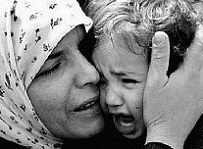 Beware the Derogators: The Geneva Conventions Turn 75
Beware the Derogators: The Geneva Conventions Turn 75
Binoy Kampmark | On August 12, 1949, the four Geneva Conventions were adopted, laying the basis of a normative standard in international humanitarian law. As Balthasar Staehelin, personal envoy of the International Committee of the Red Cross (ICRC) president to China, stated at an anniversary event at the Swiss Embassy in Beijing, [...] The very first Geneva Convention, inspired by the activism of Swiss businessman Henry Dunant and the International Committee for the Relief of Wounded Combatants, was adopted as far back as 1864. The instrument was intended to protect the vulnerable and wounded members of armed forces, and those responsible for their care. Three revisions and expansive updates followed: 1906, 1929 and 1949. [...] Of significance is Article 4, which defines the reach of such protection as covering persons “who, at any given moment and in any manner whatsoever, find themselves, in case of a conflict or occupation, in the hands of a Party to the conflict or Occupying Power of which they are not nationals.” ■ In humanitarian law, the gulf between observance and violation can be vast. In 2023, the United Nations recorded the deaths of 33,443 civilians in armed conflict. This constituted a 72% increase on those from 2022. Joyce Msuya, Assistant Secretary-General for Humanitarian Affairs and Deputy Emergency Relief Coordinator, cited conflicts in Gaza, Sudan, the Democratic Republic of the Congo, Myanmar, Nigeria, the Sahel, Somalia, Syria and Ukraine.




